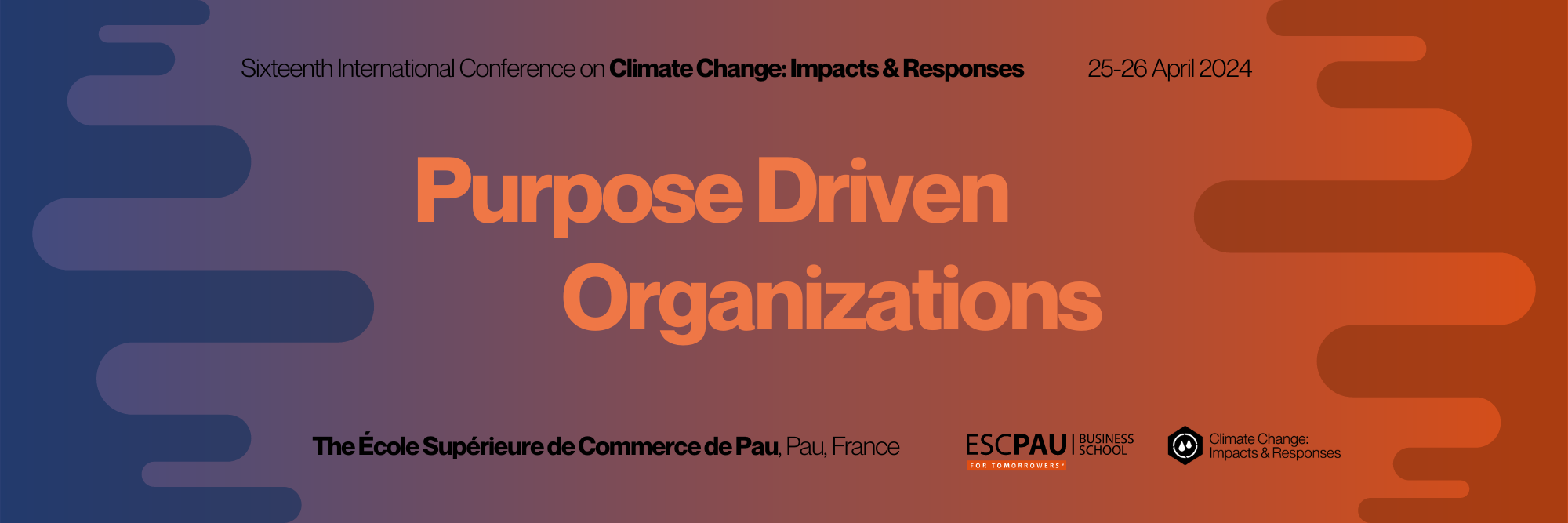Responding to a Climate Emergency: Purpose Driven Organizations for a Sustainable Future

In the past decade, mirroring our collective understanding of the climate and ecological emergency, there has been a surge of interest among practitioners and academics in purpose-driven organizations as a way to align organizations with a sustainable future and a ‘Wellbeing Economy.’ An initial period of intense but uncoordinated debate and action around the topic was characterized by a fragmentation of ideas about what ‘purpose’ was, how it relates to sustainability and existing organizational concepts, and how the transformation from business-as-usual towards purpose-driven practice could be achieved. This was helpful and necessary but also led to confusion and ‘purpose-washing’ (i.e., the continuation of unsustainable practices masked by claims of good intentions). As the debate and ideas mature, there are some signs that we have reached an inflection point through which the notion of purpose-driven practice is consolidated, opening up the potential for a new era of action and accountability. A central marker of this phase is the publication of a British Standard in Purpose-Driven Organisations last year (PAS808:2022).
The Special Focus of the Sixteenth International Conference on Climate Change shines an interdisciplinary light on the role and nature of purpose-driven organizations. It explores its relevance for organizations addressing climate change and related sustainability challenges.
Understanding Purpose
How and why has the concept of purpose in organisations, and business particularly, gained so much attention in recent years? How far does purpose start to unite different types of organisational forms (commercial, social enterprise, charities, public sector?). How much of a paradigm shift from ‘business-as-usual’ does a ‘purpose’ logic demand, for different types of organisations and for how we think about the wider economy? How and why are purpose-driven organisations aligned to helping organisations achieve long-term wellbeing for all (sustainability) and simultaneously financial viability for the firm itself – where are the financial/ sustainability win-wins and where are the trade-offs?
Implementing Purpose
How can organisations that are committed to becoming more purpose-driven implement this transformation effectively, and what needs to change about organisational culture to support this? How can different sectors and types of organisations play a significant role in building a more sustainable economy through organisational purpose. What role do businesses and their stakeholders play in leveraging the purpose ecosystem to respond to climate change and other more immediate challenges that are prevalent in our uncertain times (e.g. COVID-19 and the war in Ukraine)? More broadly, how far do surrounding culture systems (laws, regulation, behaviours, habits, narratives etc.), support or constrain the development of purpose-driven organisations and the ‘Wellbeing Economy’ that they underpin. What specific regulations, laws and standards are necessary to be assessed and revised to enable and not restrict purposeful business? What are the governance implications of becoming a purpose-driven organisation – at the country, company and community level?
Purpose and Universities
There are wider implications too for business schools, in terms of how they are managed and approach teaching, given that it is accepted that higher education institutions need to discover how they can generate environmental and societal impacts beyond educating students and producing research. Given this, and based on the concepts of purpose and organisational purpose, we will discuss the movement towards a purpose-driven business school, in which leadership, faculty and students work together to move from being best in the world to being best for the world. What new approaches are needed to address the power of purpose-driven in educational institutions, more specifically in universities and business schools?
Measuring and Investing in Purpose
How can purpose-driven companies measure social and environmental impact? What should organizations do to shift from why to how and move beyond this to lead a purposeful businesses movement? How should strategic planning transform to ensure achievement of business ethics and ESG standards towards sustainability and how can purpose help with this? How might accountability and standards in purpose support capital flows from away from a primary focus on high-financial income investments towards high impact investments? How could leadership style change from one optimised for business-as-usual to one that can optimise purpose driven outcome?
We welcome delegates and contributors from academia, grassroots organisations, government, the business community and beyond. Change is needed in all parts of the system and through collaboration between many different actors, and so we invite reflections and insights from researchers, practitioners and activists around the world.
To reflect our own recognition of the need to do things differently, the 2024 conference will encourage and enable virtual participation to minimise physical impact of the conference.